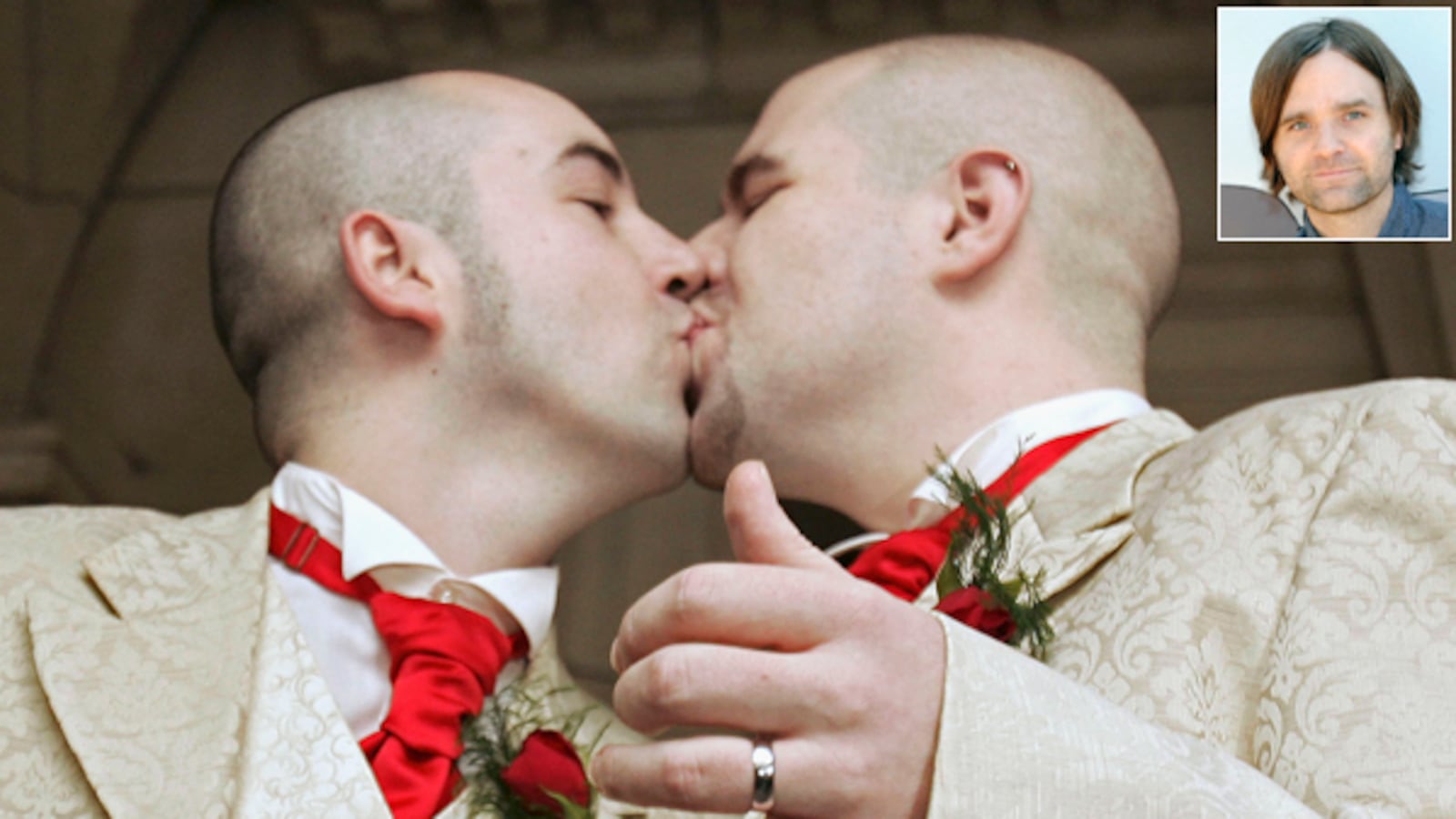I’m 36 and my sister is 32. Because of our age gap, we were never in school together at the same time after elementary school, but we did end up going to college together at Western Washington University. When my sister came out to me, it wasn’t something that I necessarily expected; I didn’t have my suspicions about it. My sister is a very feminine woman and doesn’t come off as what some people would label a “stereotypical gay woman.”

When my sister tells the story, she says she came out to me and I had virtually no reaction to it. She was 18 and a freshman in college, and I was 21 at that point. But it just didn’t matter to me. It wasn’t: “Oh my God, you’re gay! What does this mean?” In the context of our relationship and the community of people I grew up with, there wasn’t anything shocking or world-altering about someone coming out.
It wasn’t until we were in our 20s that we really spent a lot of time together. We live mere blocks away from each other in Seattle and go running together.
In June 2009, she got married to her then-girlfriend. After the event happened, I remember talking with my parents, who are of a generation where, when my sister came out, everything they thought about what their daughter’s life was going to be like was now different. That takes some readjusting, especially if you’re from a generation that’s more used to “traditional” family. The first thing my parents thought was, “We’ll never have a white wedding!” because they weren’t thinking far enough in advance to where a gay wedding would be an eventuality.
And when my sister got married, it was everything that my parents—and I—could have ever expected from a wedding ceremony, and more.
It was at Capitol Hill out here in Seattle. My sister was in this beautiful dress and her wife was wearing this great suit. It was the most beautiful thing I’d ever seen. I was tasked with playing a few songs during the wedding and I just couldn’t get through it. I was bawling. It was just too much joy.
At some point over the course of the evening, I remember talking to my dad and he told me, “This is more wonderful than anything I could have expected for my daughter ... This is it.” My sister found this amazing human being and it was the same joy, the same love, and the same experience as any straight wedding I’d ever been to. For me, it was much more emotional because it was my sister—and also just being there and seeing my parents overwhelmed with pride and joy. When she came out they initially thought, Our daughter’s life is not going to be what we thought it was, but it turned out to be greater than anybody could have possibly imagined.
My familial ties are one of the many reasons that I’ve become involved in raising money to help push through Referendum 74 (R-74), to approve the February 2012 bill that would legalize same-sex marriage in the state of Washington. If Washington State can pass this referendum, we’d be the first state to pass gay marriage by a popular vote. The opposition is very strong but the thing that gives me hope for the future is that marriage equality is polling at about 80 percent among people under the age of 25. This issue isn’t going to go away; support is only going to get stronger and the voices will only get louder. I would just feel so much pride for my state if we could pass it by a popular vote and show the rest of the country that this is the direction we are going in.
The fight for marriage equality bears many similarities to the Civil Rights Movement in the 1960s. We can now look back at a generation of people who are parents and grandparents who were not in support of this, and now have to look their children and grandchildren in the eye and explain why they weren’t for equal rights for all. This is a conversation that’s going to have to happen for people who currently oppose marriage equality. Being recognized has to do with insurance benefits, hospital visits, and other benefits that are not available to gay couples but are available to straight ones. There are these ads that are running now in Washington State that say, “You can be pro-gay and be anti-gay marriage.” No you can’t! That is a bigoted position.Earlier this year, the Democrats took a party-wide position that they were pro-marriage quality. Conservatives, playing Devil’s Advocate, argued, “Yes, but they waited until it was polling at over 60 percent.” Well, yeah! So why wouldn’t the Republicans also want to cash in on this?In my opinion, it’s clear that Mitt Romney is moving so far towards the center as we creep into the final weeks of the election to blur the lines between President Obama’s camp and his, so that he can steal votes from the center. There were so many moments during the foreign policy debate where he was repeating exactly what Obama said and snaking his way to the middle to steal votes. In that sense, even though the Romney-Ryan position has been anti-gay marriage, I can’t see a world in which any politician will want to toe this line when an entire generation of people is coming up and voting who see this as a non-issue. The changing tide on this issue in mainstream America will push politicians to embrace marriage equality, at least in public, to not lose votes. My sister, meanwhile, is happily married to her partner and is a social worker here in Seattle battling teen homelessness. She is a wonderful human being.






